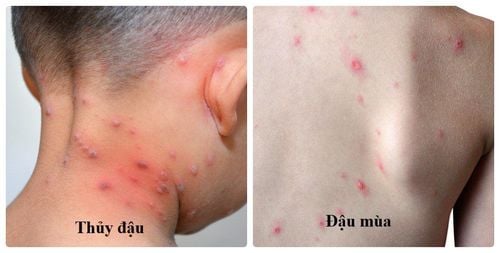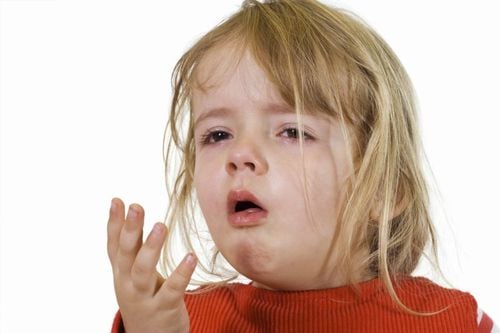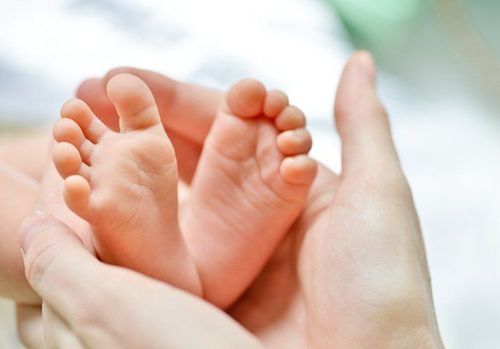Article professionally consulted by Dr. Nguyen Thai Ngoc Chau - Pediatrics - Neonatology Department, Vinmec Phu Quoc International General Hospital.
Excessive sweating on a baby's head is a common occurrence, especially in newborns. In most cases, this is normal. However, it can also be a sig
1. Causes of Head Sweating in Children
From a medical perspective, the purpose of sweating is to cool the body. In children, sweating on the head during the day or night is often due to external factors such as weather, wearing too many clothes, or being in a stuffy room. This phenomenon will decrease or disappear completely when the child can self-regulate body temperature by coordinating the sympathetic nervous system with other organs to create a balanced system for the body.
Most children who sweat a lot on their heads are normal and not worrisome. The causes of this condition can be:
Incomplete Nervous System: The human nervous system is a complex network of cells and nerves that transmit messages from the brain and spinal cord to other parts of the body and vice versa, while also controlling body temperature. In infants, the nervous system is not yet fully developed, so it cannot help regulate body temperature like adults, causing the child to sweat a lot on the head.
Sweat Gland Location: In adults, sweat glands are not limited to any part of the body, but in infants, they do not have many sweat glands in the armpits, while the sweat glands on the head are the most active. Therefore, if the child sleeps in a stuffy environment or is very active, they will sweat a lot on the head.
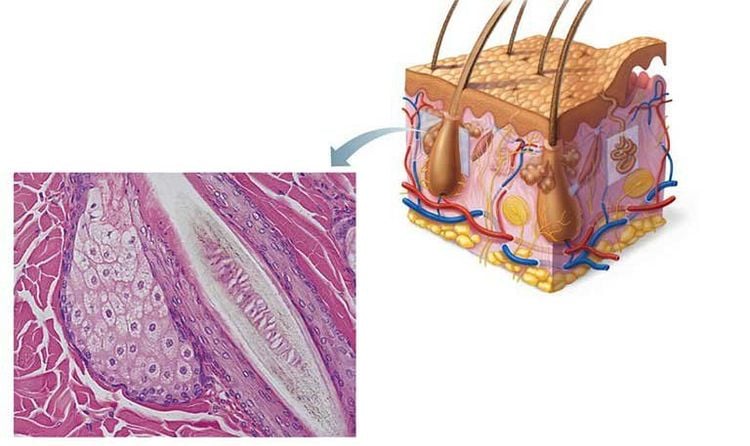
Breastfeeding: Sweating a lot on the head while breastfeeding is very common because when breastfeeding, the mother will hold the baby's head in one position for a certain period, causing the arms to continuously transmit heat to the child, making the child hot and sweat more on the head.
Room Temperature: Not only infants but even adults can sweat when in a very hot room. Therefore, for infants who cannot self-regulate body temperature, sweating on the head when in a high-temperature room is understandable. Some mothers are also afraid of their children getting cold, so they always dress them in thick clothes, covering the body from head to toe, causing the child to sweat a lot on the head and develop rashes.
Trắc nghiệm: các chỉ số cần chú ý về sự phát triển thể chất của trẻ
Chiều cao, cân nặng của bé ở từng giai đoạn nên là bao nhiêu là bình thường, bao nhiêu là bất thường? Cùng ThS.BS Ma Văn Thấm điểm lại xem bạn đã nắm được các chỉ số phát triển thể chất của bé chưa nhé!The following content is prepared under supervision of Thạc sĩ, Bác sĩ y khoa, Ma Văn Thấm , Nhi , Phòng khám Đa khoa Vinmec Dương Đông(Phú Quốc)
2. Is it Worrisome if a Child Sweats a Lot on Their Head?
Besides some external factors, excessive or abnormal sweating on the head can sometimes be a warning sign of a health issue that parents need to be aware of, such as:
Heart Problems: If the child not only sweats a lot on the head while sleeping but also sweats a lot during simple activities, they may have a heart problem, possibly congenital heart disease. The reason for excessive sweating is that the heart has to work harder to complete the task of pumping blood.
Hyperhidrosis: If the child is in a room with a stable, cool temperature but still sweats profusely, they may have hyperhidrosis. However, this condition can self-resolve as the child grows older, or parents can teach the child how to control sweating to avoid affecting daily activities.
Sleep Apnea: This can also be a cause of excessive head sweating, more common in premature infants, accompanied by symptoms of wheezing, pale skin, and discomfort.
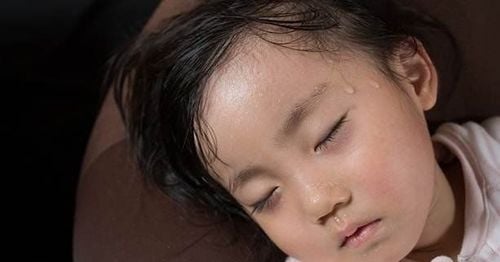
3. Treatment for Excessive Head Sweating in Infants and Young Children
For treatment options for excessive head sweating in infants and young children, specialists suggest the following measures:
- Ensure adequate vitamin D supplementation for the child.
- Keep the child's body cool, with a spacious and well-ventilated sleeping environment.
- Maintain good hygiene for the child and ensure they are well-hydrated.
- Avoid scaring the child before sleep and do not feed them too much before bedtime.
- If the child sweats a lot on the head and back, use a soft towel to wipe the sweat to prevent colds.
- Provide a reasonable diet with plenty of cool, sweet, and nutritious vegetables and fruits.
- Take the child to the doctor immediately if any abnormalities in sweating are detected.
Although head sweating in infants is quite common, if the child sweats excessively, it should not be taken lightly, and the child should be taken to the hospital for a check-up to rule out any unwanted health issues.
In Vietnam, currently, out of every 10 children under 5 years old, 7 are zinc deficient, and out of every 10 pregnant women, 8 are zinc deficient. The zinc deficiency rate in pregnant women is 80.3%, in women of childbearing age is 63.6%, and in children under 5 years old is 69.4%. Common signs of zinc deficiency in children include slow growth, mild to moderate malnutrition, stunted height growth, and some observable symptoms such as loss of appetite or reduced eating, reduced breastfeeding, refusal to eat meat and fish, slow digestion, mild constipation, prolonged nausea, and vomiting in children. In addition to reasonable zinc supplementation, parents should also provide their children with other important vitamins and minerals such as lysine, chromium, B vitamins, etc., to help them eat well, have a good immune system, and increase resistance to reduce minor illnesses and digestive problems.









